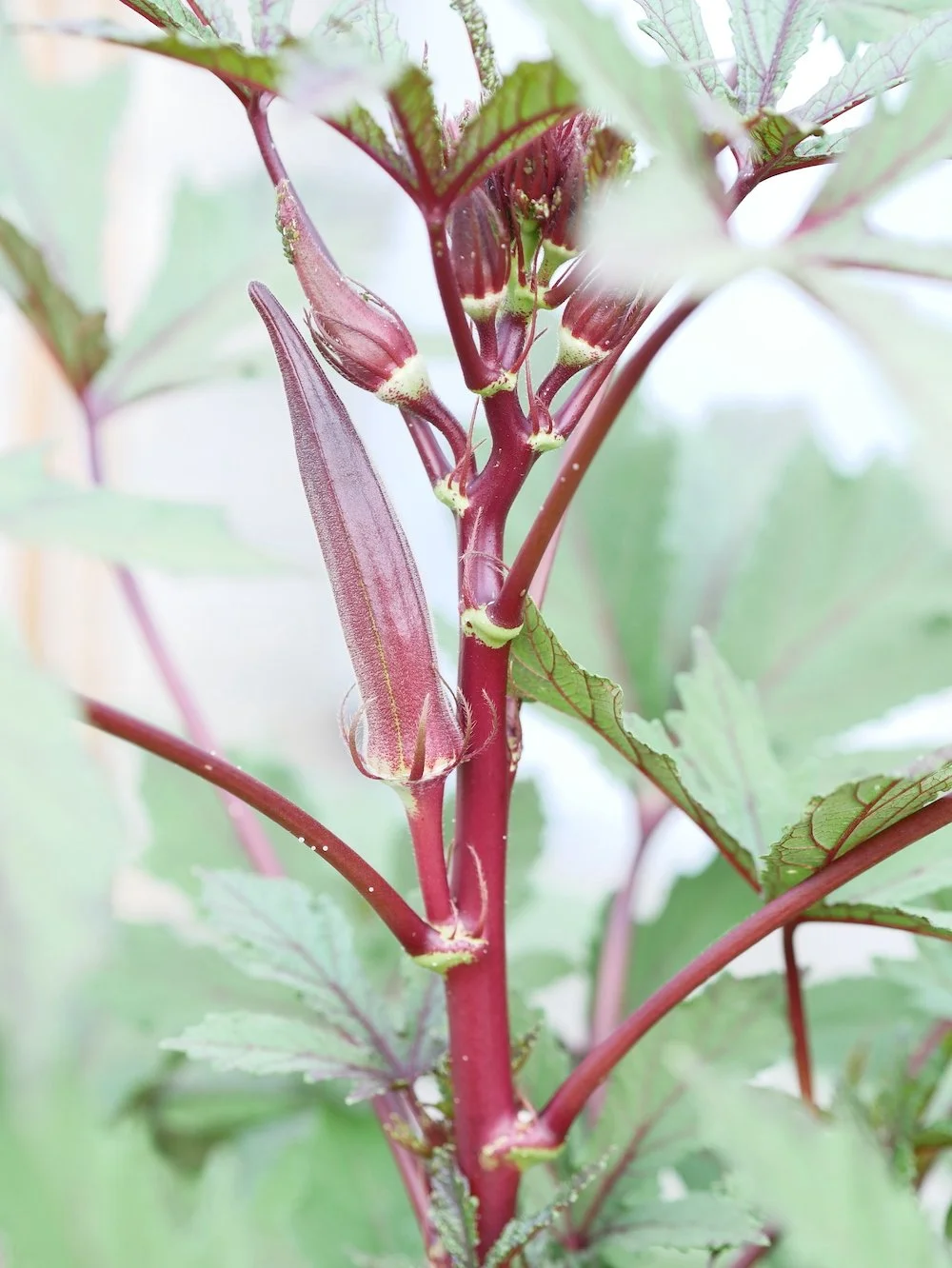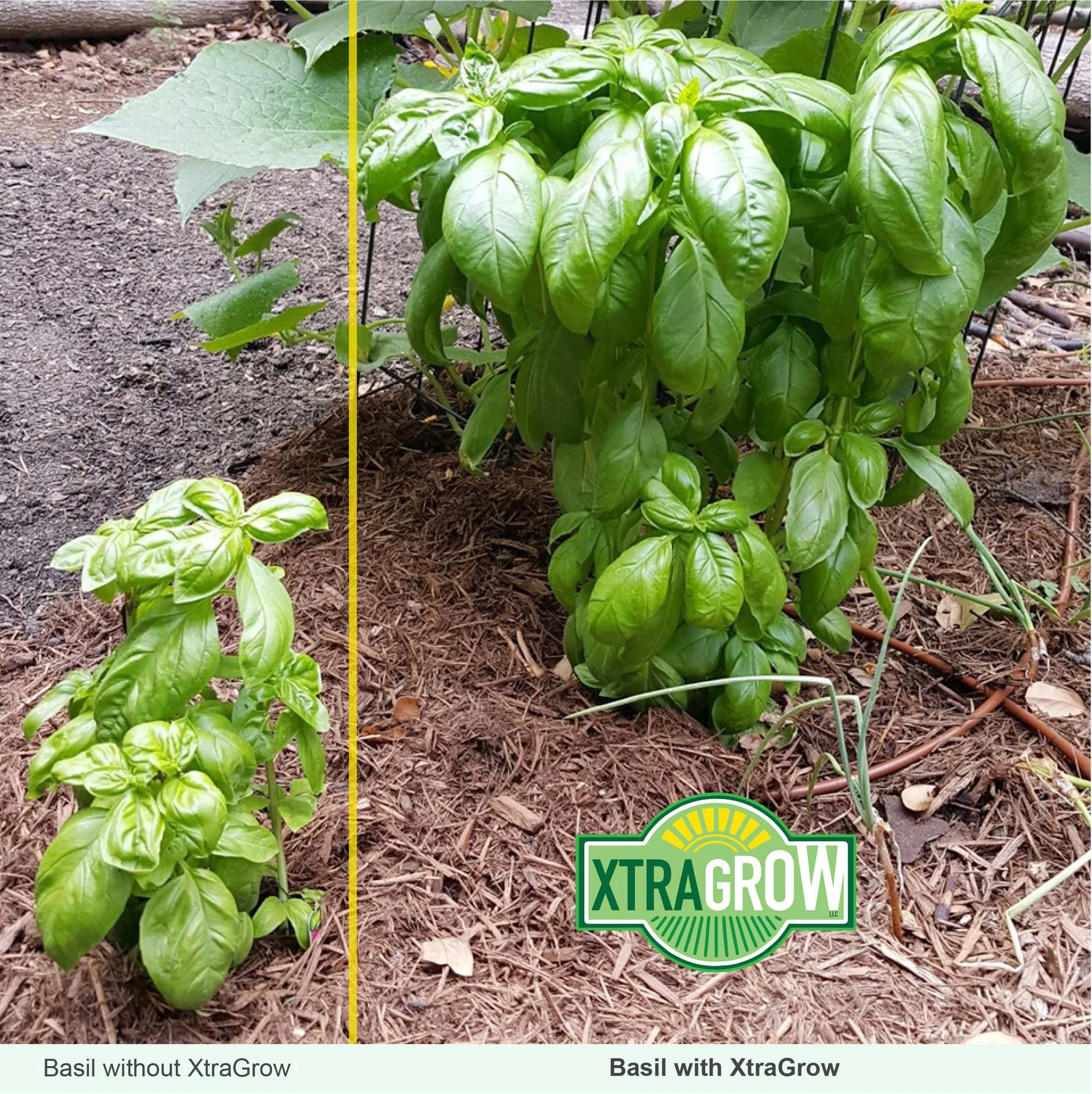Summer Garden Maintenance: Garden Care in the Hot Season
Don’t let preconceptions about gardening throw off your groove: you can garden year-round in Texas, from the hottest blaze of summer to the coldest freeze of winter! The trick is knowing what to plant and when. Alarmed by reports of record-setting heat waves? That’s only an issue if you’re trying to grow the wrong thing for the hot season. To figure out your growing seasons, you can download a free PDF from our home page that helps you understand the seasons in your area. I can tell you from the amount of sweat oozing out of my pores today that we are most definitely in the hot season here in North Texas. So what does that mean for the garden and what can you do to aim for ultimate success?
1) Grow the right plants for the hot season (and adjust your expectations for the rest).
What does the average person imagine when they think of foods grown in a traditional home garden? I think of tomatoes, carrots, cucumbers, and lettuce. Unfortunately, tomatoes will go dormant if the temps get consistently above 95 degrees during the day - they’ll stay alive, but they won’t produce any fruit, preferring to hang on for dear life until the temps drop again. Carrots & lettuce are both cool-season crops and likely will refuse to grow in high temps. Cucumbers will grow, but their fruit won’t be happy and they’ll be more susceptible to pests.
This is where we have to get creative and grow some slightly non-traditional plants that will thrive in the heat. Starting now and through July, you can plant:
Red okra will thrive in Texas summer heat
okra
yard-long pole beans
Armenian cucumbers (much more heat-tolerant than normal cukes)
luffa gourds
winter squash
hot peppers (bell peppers won’t love the heat as much as hot peppers, and peppers in general will prefer morning sun and not the beating of the western sun)
malabar spinach (great leafy-green option for summer)
small melons & small pumpkins
cowpeas, black-eyed peas, crowder peas, southern peas
eggplant
sunflowers
cosmos
zinnias
2) Cover your soil.
Black-eyed peas are an easy way to cover the soil, and fix nitrogen too!
The worst thing you can do to your soil is leave it bare to the scorching summer sun. But instead of mulching, make it your mission to cover every bare inch of soil with a plant! Black-eyed peas and bush-type southern peas are the easiest way to get a plant growing in an empty space and covering the soil in summer. You can buy a bag of dried black-eyed peas from the grocery store to stick in the dirt and voilá! Up will pop a plant! Also, don’t overlook the role of herbs - basil, rosemary, sage, thyme, and oregano will transplant fine in the heat and are a great way to protect the outer edges of the growing space. I also love to add flowers all around the edges - they look purty and attract pollinators.
3) Water consistently.
Watering a little every day = super shallow roots (bad)
Watering deeply every few days = deeper, healthier roots (good!)
There’s no way to tell if the soil needs to be watered just by looking at it. The top will dry out even if underneath is good and moist. Get yourself a moisture meter so you don’t have to try and guess. Stick it six inches into the dirt. When you water, the meter should say “wet” at every point of the bed, corners and middle. Your garden likely doesn’t want to be soaking wet all the time, nor should you let it dry out too much. Rely on the moisture meter to lead the way, and make sure to skip a day or two if it rains significantly.
4) Feed your soil.
If your plants are looking a little wilted, yellowing, or are struggling with insect pests, you need to feed the soil! Healthy soil = healthy plants. Fruiting plants like tomatoes are especially heavy feeders and require a lot of nutrition. Add some compost, organic fertilizer, worm castings, manure, and whatever else you can get your hands on that will feed the soil naturally. Skip the synthetic fertilizers!!! These give the soil a temporary boost like sugar, but ultimately harm both the soil and the planet.
One soil food product I’ve recently tried and been very impressed with is Xtra Grow. The creator and owner lives right here in Highland Village, TX, and has come up with a unique way to turn real human food into ultra-nutritious plant food, like you can literally eat the dry powder out of the bag. Instead of relying only on decomposed, second-hand matter to feed the soil, Xtra Grow is premium organic matter to get premium production out of your plants. What’s really fun to see is how the plant looked before applying Xtra Grow, and how it looks after the roots take up that extra nutrition - there’s a mini explosion of growth! Big note: don’t use Xtra Grow when starting seeds as it will dessicate the soil too much (and seeds need moisture to break open). If you’re interested to learn more, reach out to me, and here’s a link: https://xtragrow.com/ref/58/
5) Prevent problems proactively.
This traditional cucumber plant was growing in the hot season and was lacking in soil health, making it more prone to nasty pests
Aggressively prune away dead and diseased parts of plants. If you have to take off more than 2/3 of the plant, you probably need to rip it out and replace it.
Feed the soil: healthy soil means your plants are better able to fight off pest problems and bounce back.
Spray pests with a mixture of castile soap and water. If that doesn’t work, try neem oil or Monterey BT. Treat every day for a week. If one thing doesn’t work, switch to the next option.
If the problem is a critter like a rat or rabbit, cover your plants with a physical barrier so they can’t get in, but use a mesh that still allows pollinators in to do their thing (no pollinators means no fruit!).
Wire hoops support bird netting to protect from rabbits/rodents while still allowing pollinators in
Trellises maximize garden space
6) Grow up.
You can get so much more out of your garden space if you grow vining plants vertically on a panel trellis, arch trellis, obelisk, or any other vertical structure. One watermelon plant would take over an entire raised bed if allowed to grow wherever it wants. By training it up a trellis, I can grow so many other things in the bed alongside it.
7) Don’t be afraid to sweat!
Summer gardening in North Texas is a sweaty business, even if you go out in the earliest part of the morning. While most folks are hiding inside their air-conditioned buildings, celebrate the benefits you’re getting from being outside! Getting a good sweat going flushes out toxins, improves immunity, helps with weight loss, and builds grit.
Want more help with your garden in this season or the next? Reach out for a free 15-minute Discovery Call with me, the Garden Coach, to see how I can best serve you.
#gardencoach #gardenguru #gardendesigns #gardening101 #gardeninggoals #gardeningknowhow #gardeningtime #gardeninglovers #gardeningaddict #gardeningclass #gardeningforbeginners #flowermound #flowermoundtx #dentontx #highlandvillage #gardeneducation #vegetablegardener #herbgardening #growingfoodathome #plantingseason #plantingseeds #lewisville #dentoncounty #dallas #fortworth #growingfoodathome







